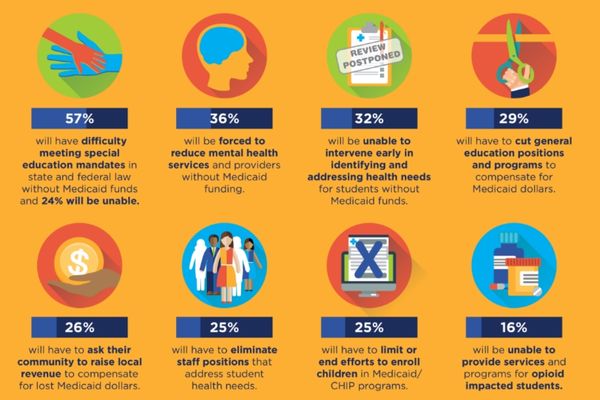The Healthy Superintendent Is an Effective Superintendent
September 01, 2020
My View
About a year ago, during a presentation to superintendents, I posed this challenge: “Pick a random workday last month. Think of an action you took on that date that aligned with your district’s continuous improvement strategic plan. Stand
up if you can articulate this action.”
Not surprisingly, everyone stood and started sharing his or her actions. After gaining back focus with my signal “Your board president called and wants a word,” I presented a second
scenario: “Pick the same workday. Think of an action you took that aligned with your personal continuous improvement health plan. Stand and be counted.”
This time, there was no buzz, only a single hand count tally and no loud
“attention please” whistle.
Physical Tolls
The modern superintendency does not suffer from the lack of crises. There are teacher shortages, school safety, inadequate funding and, the list topper, a public health pandemic. Some argue that the superintendent’s primary role is to lead the district
through a crisis and have the foreseeability to prevent a crisis. The coronavirus certainly is testing this theory as superintendents navigate the uncharted and often rough seas of remote teaching, remote meetings, remote graduations and remote board
governance.
I further would suggest that crisis leadership takes a real toll on the superintendent’s mind and body. Medical science clearly demonstrates that stress caused by crisis leadership elevates heart rate, stress hormones and blood pressure.
Besides crises, the superintendency also is defined by dilemmas like those I’ve referenced. Be a crisis leader and suffer the health consequences, or avoid, deflect, abdicate and live longer.
There are other options for dealing
with crisis leadership stress that I discovered after suffering a stroke during my superintendency.
Breakfast Mandate
We know the brain is an energy hog. It needs fuel and the blood flow to get it to our neurons.
Therefore, it makes sense if we want to be cognitively prepared to handle crises first thing in the morning, we should do two things: exercise and eat a healthy breakfast. I am not suggesting that crises happen more often in the morning, and I have
no research to support this claim. It just seems like things accumulate at night and are delivered like Amazon in the morning, just without the neat boxes.
Research clearly connects exercise with stress reduction. Schedule your exercise
routine in the morning, night or whenever you can squeeze it in. My doctor recommended six hours of moderate- to high-intensity exercise a week. His one comment that really resonated during my recovery was exercise whenever you can, especially when
it is inconvenient. Everyone has her or his own motivational system. Mine was putting my tennis shoes on. Once they were on, I was committed.
Diet also impacts your ability to be proactive and reactive as a leader. Teachers have a fit if
just one of their students skips lunch or throws fruit away. Don’t stress out your teachers.
Annual Checkup
Imagine informing your school board during your superintendent report agenda item that you have cancelled the year-end study session to review strategic plan progress. When asked why by the board, you reply, “Staff is too busy with other projects
to gather the data. Why waste the time when I feel we are doing fine?” I would guess the next meeting had an executive session to discuss your contract.
You would never forgo the district’s annual vital signs physical. The same
rules apply to your personal health. Districts can have fine reading scores until data are disaggregated and the truth is exposed: Subgroups are performing 20 points below state average. You can feel physically fine with no symptoms and never miss
a day of work and yet have dangerously high blood pressure. If undetected and untreated, you are on a stroke path, missing many workdays and possibly suffering worse consequences.
You may not be able to predict and prevent the next crisis,
but you can improve your crisis leadership effectiveness through exercise, diet and self-care.
@brainonschool
Author
Advertisement
Advertisement
Advertisement
Advertisement



